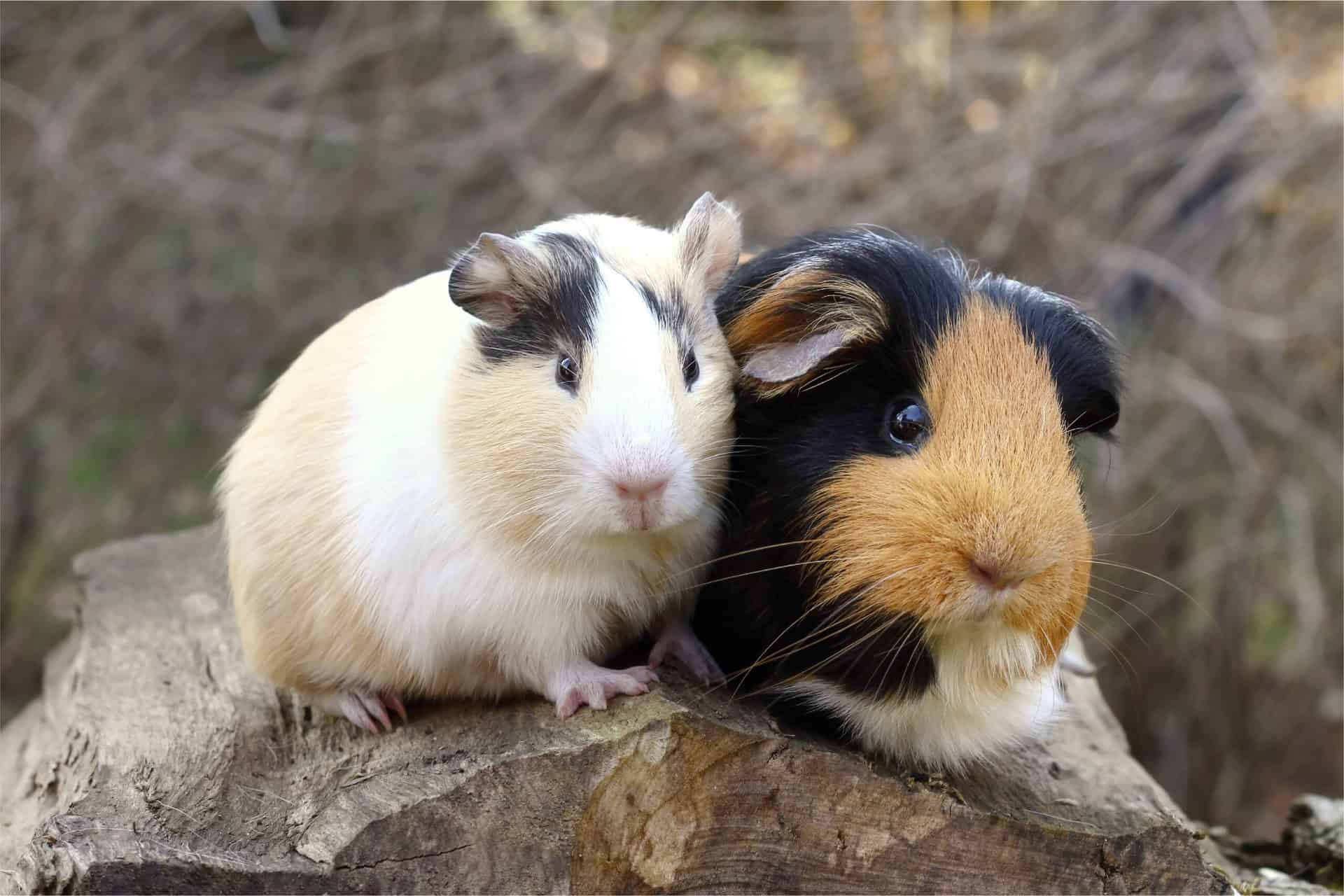Housing your guinea pigs
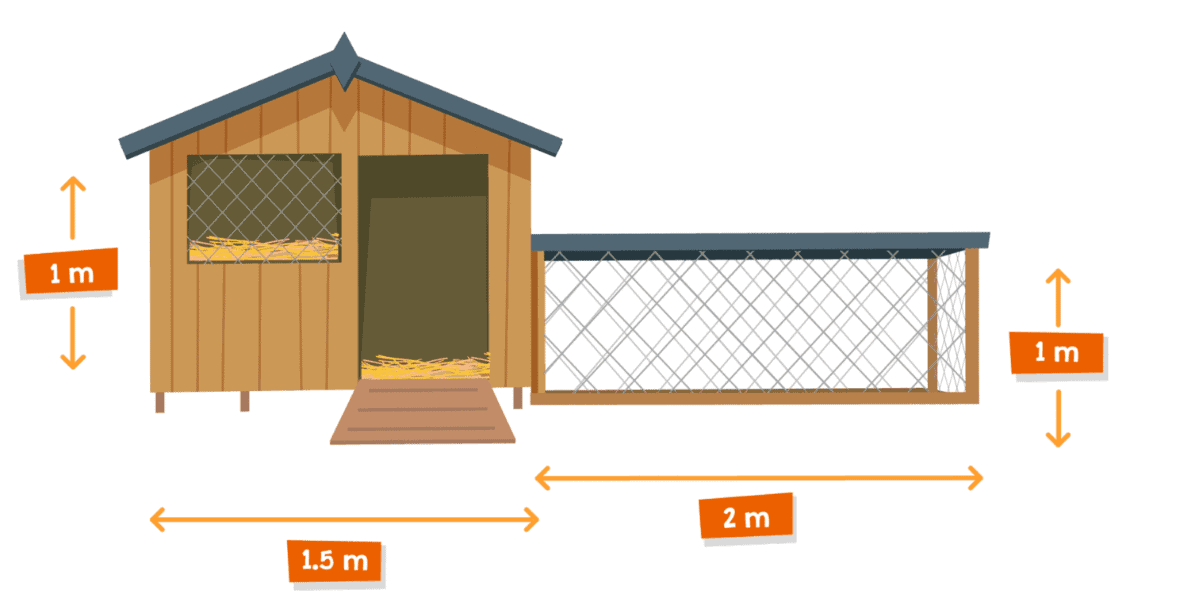

Quick tip
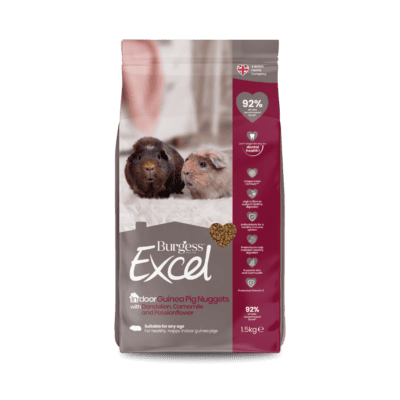
Excel Indoor Guinea Pig Nuggets
Did you know?
Housing Checklist
Guinea pigs can be kept indoors, but it is important that you gradually get your guinea pigs used to common household sights sounds and noises. All areas that your guinea pigs move around in should be fully proofed to ensure that they are safe and protected from hazards. For example, all electric cables should be covered to stop your guinea pigs from chewing on them and any house plants should either be safe for guinea pigs or kept out of the way. You should also make sure the flooring is non-slip as slippy floors can cause injury and stress.
Your guinea pigs should also be kept away from radiators and their space should be kept well ventilated, the temperature for your guineas’ housing should ideally be kept at between 17-20 degrees celcius – some warmer areas of your house may be too hot. You should have a toilet area for each of your guineas which is separate from their bedding area. It’s also important that you provide plenty of enrichment through toys, platforms, hay and grass plants.
The essentials you will need to make the perfect set up for your guinea pigs:
Lots of tasty Excel hay! Excel nuggets Excel treats Guinea pig-proofed space Non-slip flooring Food bowl Water bowl Hay rack Litter tray & filling Hidey holes/tunnels Boredem breakers Bedding hay Guinea pig-safe cleaning products
Cleaning guinea pig housing
DAILY:
You should give your guinea pigs housing a quick clean daily, throwing out wet/dirty bedding, uneaten food and cleaning and refilling food and drink containers.
WEEKLY:
A more thorough clean should be completed weekly which involves removing and replacing all bedding as well as cleaning out the litter trays.
MONTHLY:
Every month you should give your guinea pigs housing a ‘deep clean’ where you take everything out, scrub the housing with a animal-safe cleaner then replace the bedding with fresh hay.
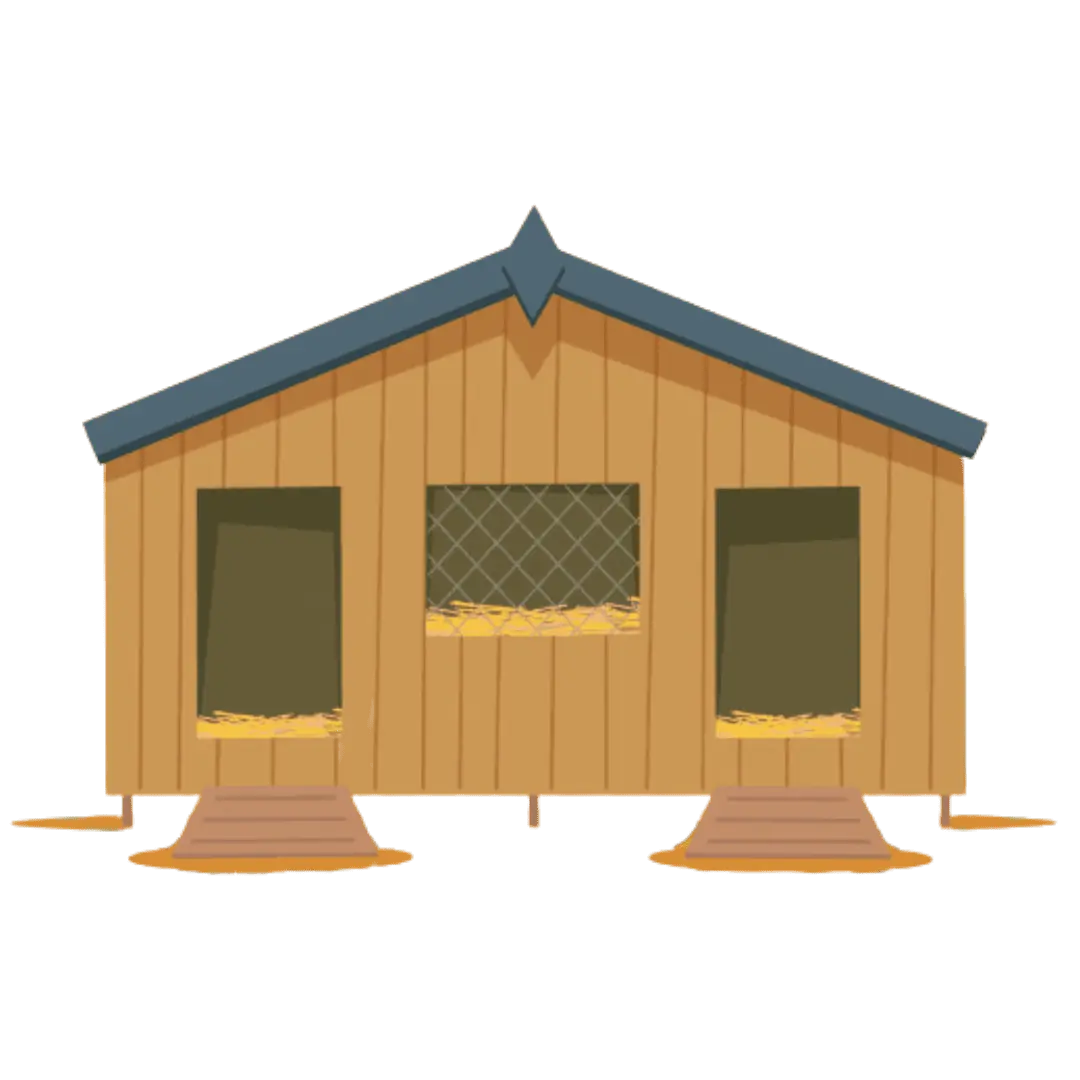
Our Burgess Excel Range

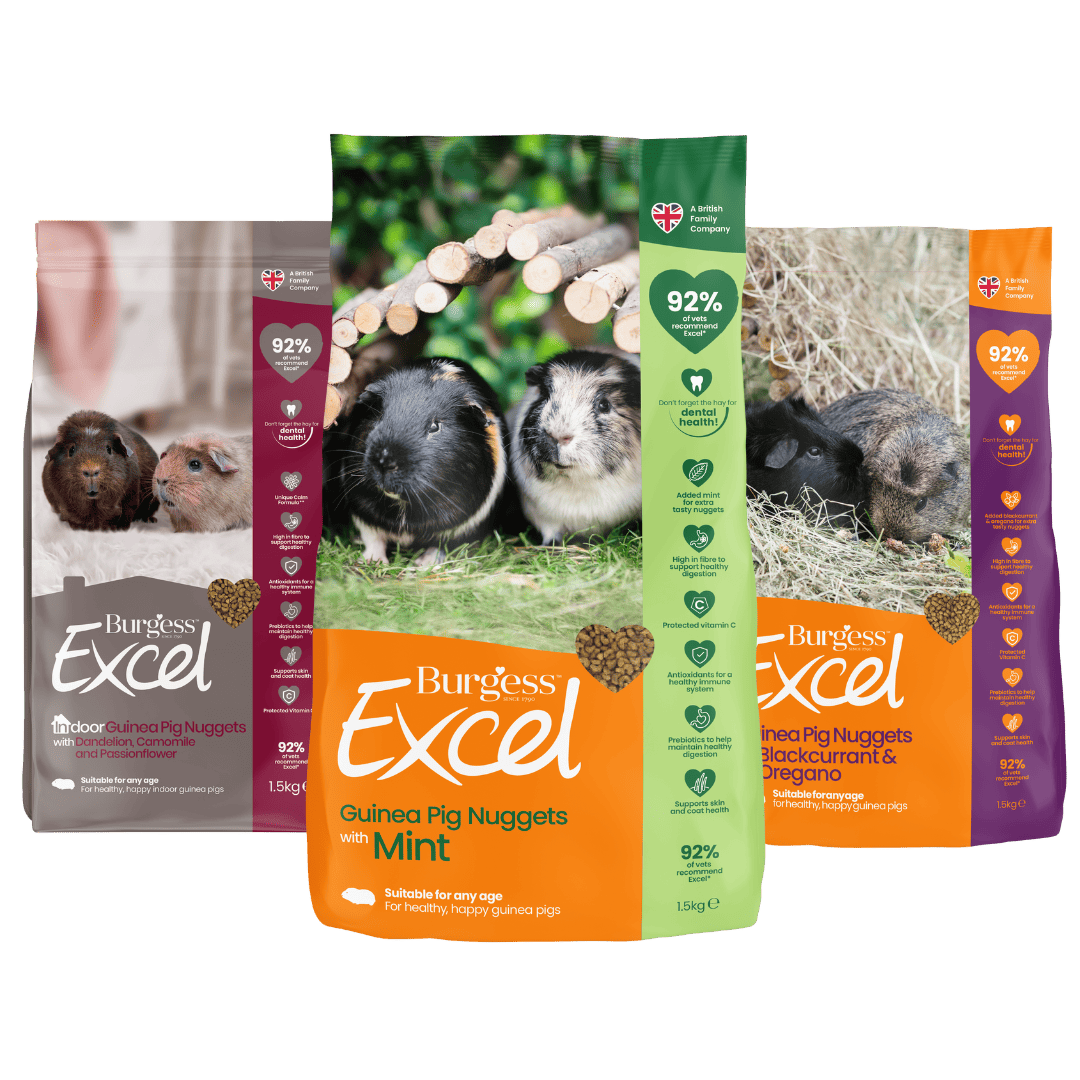

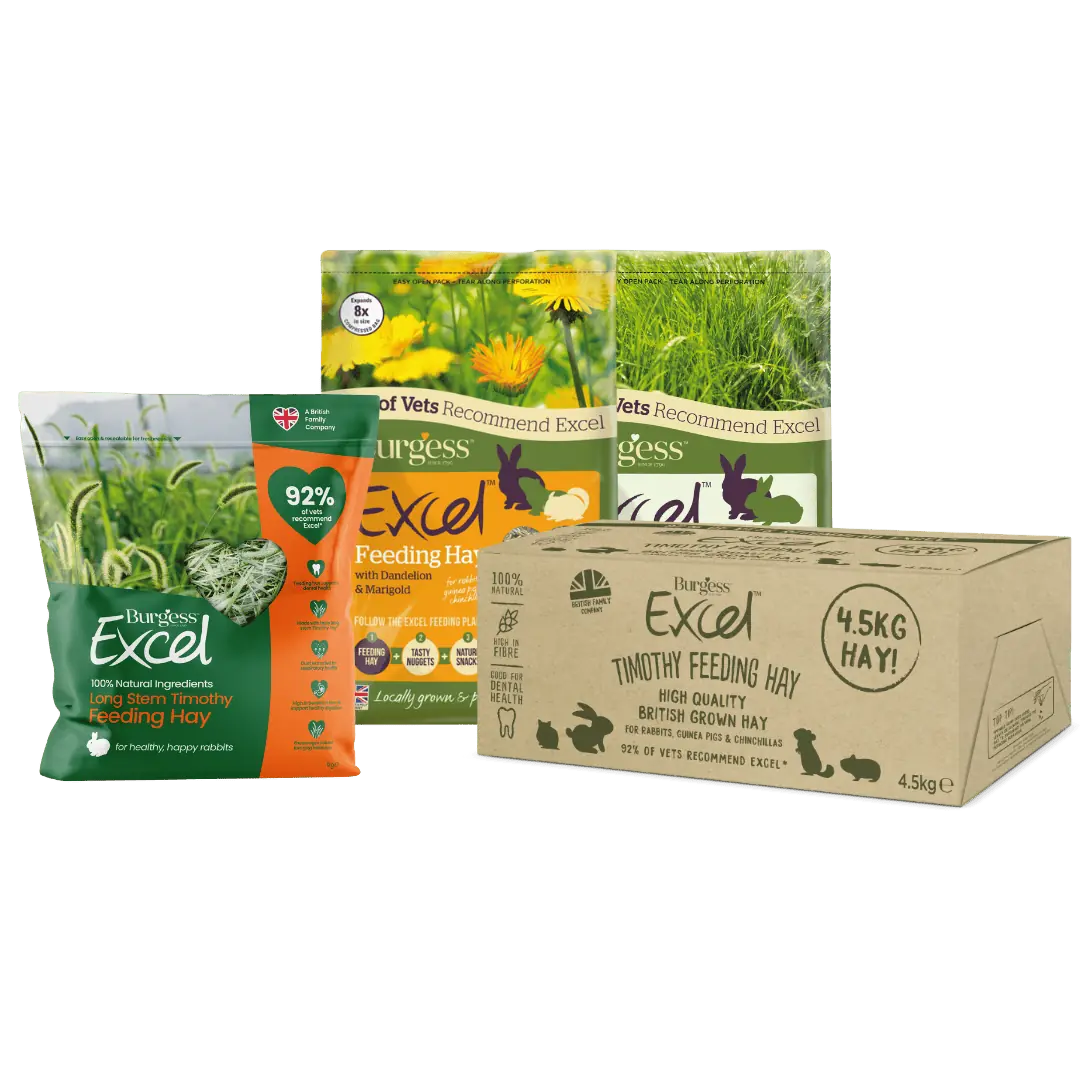



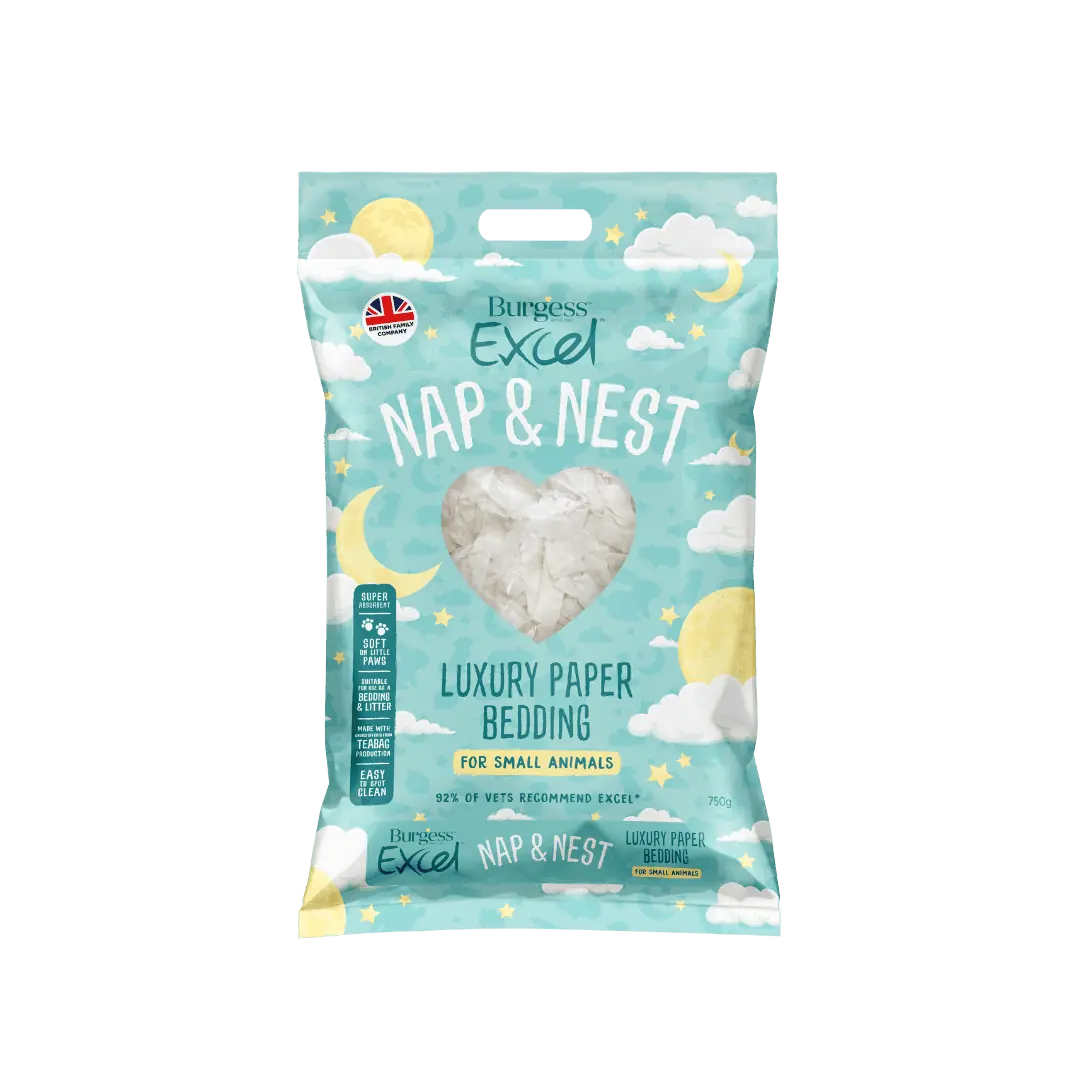
Do you need more advice?
To help you find the right food for your pet have a look at our product range.
You can get in touch with our customer care team who will respond in 3-5 working days. Our dedicated team of pet experts will help you make the right choice.
If you should have any concerns about the health of your pet, always consult a vet.

